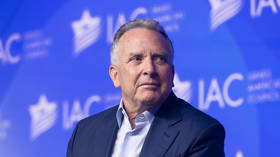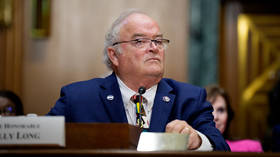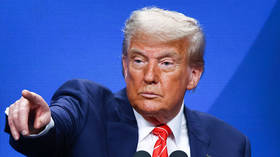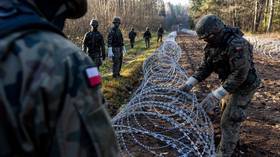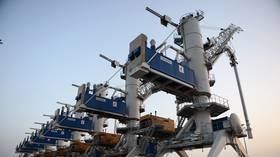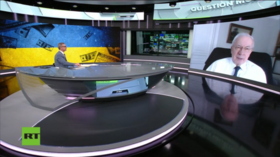Protesters storm presidential palace (VIDEOS)
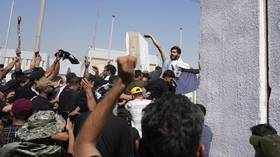
Hundreds of followers of Muqtada al-Sadr stormed Iraq’s presidential palace in Baghdad on Monday, after the Shi’ite cleric announced his resignation from politics. Military reinforcements have been sent to the palace and a curfew has been put in place.
The protesters made their way to the Republican Palace immediately after al-Sadr announced his “final withdrawal” from politics. After tearing down cement barriers outside the lavish building, the protesters made their way inside, where they chanted slogans in support of the cleric.
Palace security was unable to control the mass of demonstrators.
Drama in #Iraq: Shortly after #Muqatda_al-Sadr announced his retirement from political life, his supporters tore down the concrete barriers around the presidential palace in #Baghdad. pic.twitter.com/XFjNxvxpnD
— AbuAliEnglish (@AbuAliEnglishB1) August 29, 2022
Riots inside the Presidential Palace. #Iraq#Baghdadpic.twitter.com/RxAfPffOKm
— Tammuz Intel (@Tammuz_Intel) August 29, 2022
Military reinforcements were soon called in, and riot police used water cannons to keep further crowds of protesters away from the palace. Some of those already inside took the opportunity to swim in the palace’s pool, footage circulating on social media showed. Iraq’s Joint Operations Command issued a citywide curfew shortly after the breach of the palace.
🔴 #BREAKING Security forces use water cannon to push protesters back and prevent them from reaching the presidential palace inside the Green Zone. #Iraq#Baghdadpic.twitter.com/ey4IaDKA5i
— Sardar Sattar (@SardarSattar) August 29, 2022
Al Sadr supporters have stormed the swimming pool of the palace in #Baghdadpic.twitter.com/ebu3m5XmQy
— Ali Al Shouk (@alialshouk) August 29, 2022
In his resignation statement, al-Sadr referenced the retirement on Sunday of Shi’ite spiritual leader Ayatollah Kadhim al-Haeri, who called on his followers to support Iran’s Ayatollah Ali Khamenei in his stead. Al-Sadr claimed that al-Haeri’s resignation was “not of his own volition,” seemingly implying covert Iranian influence.
Al-Sadr is a vocal critic of foreign influence in Iraq, and has long sought to curb the influence of Iran-backed Shia militias in the country. After his political bloc won 73 seats in the 329-seat Iraqi legislature last year, he failed to form a government, due to opposition from the Coordination Framework Alliance, a Shia bloc allied with Iran, and al-Sadr’s desire to exclude its members from a potential ruling coalition.
Al-Sadr’s supporters have occupied the Iraqi Parliament since late July to prevent this rival bloc from forming a government of its own.
Mustafa al-Kadhimi, an ally of al-Sadr, remains Iraq’s caretaker prime minister. Al-Sadr has called for the dissolution of parliament and fresh elections, and Iraq’s Supreme Federal Court is scheduled to meet this week to decide whether parliament should be disbanded.


